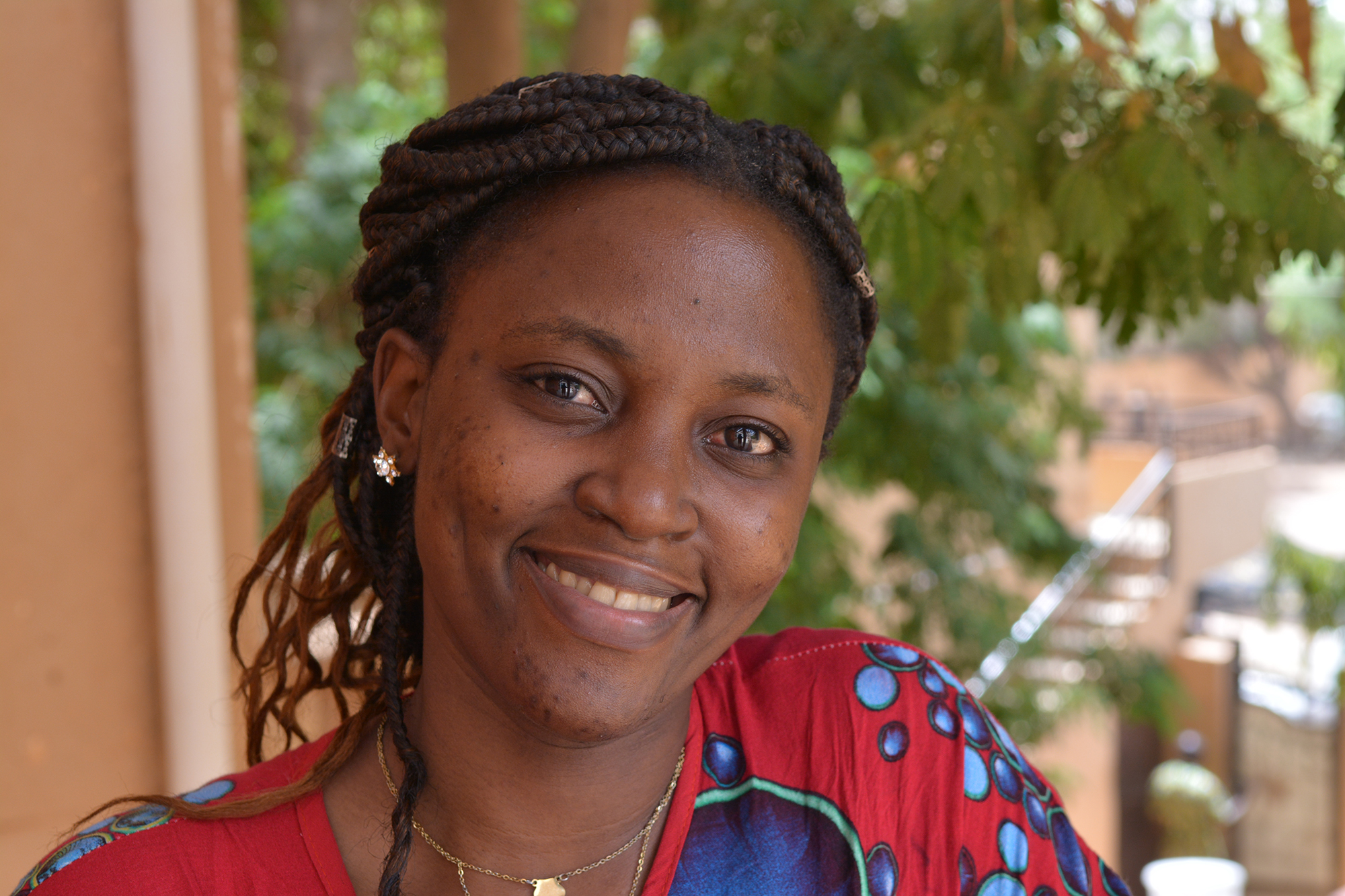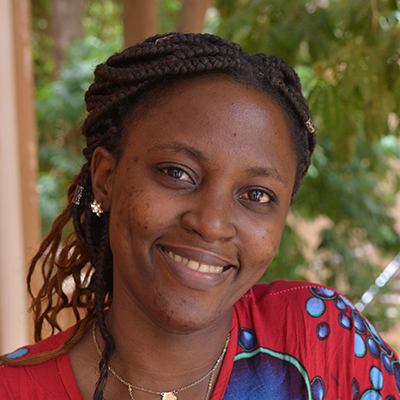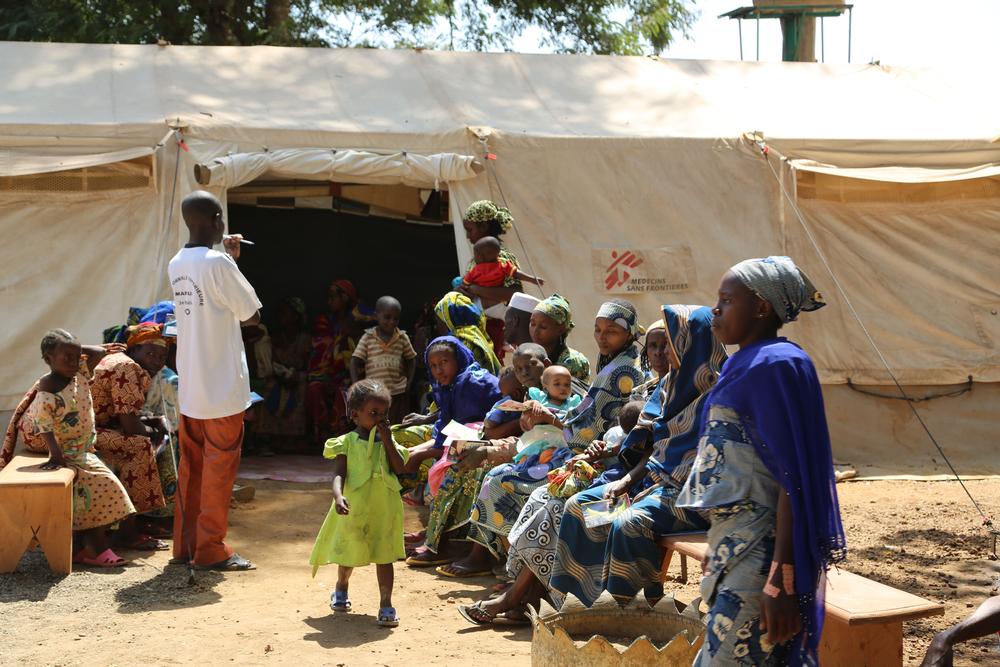Sudan: Improving hospital care one step at a time
Thousands of people have had to flee violence in West Darfur. Nurse Aghendia Alemngu has been working with the team in the teaching hospital in Geneina, the capital of the state. She shares her experience…
I first encountered Médecins Sans Frontières / Doctors Without Borders (MSF) in my home country of Cameroon in February 2014.
I was working for the Ministry of Health at Garoua-Boulai District Hospital in east Cameroon, when there was a huge influx of refugees from the Central African Republic.
There and then
Our facility was quickly overwhelmed with patients. I was working in the maternity unit, and the number of women coming in to give birth soared.
MSF sent in a team to do an assessment and quickly established a project to support the refugees.
There and then I said I had to work for MSF before I died.
The magic box
One of the problems we faced in the maternity team was treating premature and severely underweight babies.
The MSF team set up a neonatal unit using tents next to the maternity unit. Premature babies are usually kept in incubators, which help them maintain an appropriate temperature for their development and provide an environment that reduces the risk of infection.
MSF introduced what became known as the “magic box”: a locally constructed incubator made from wood and foil survival blankets.
Sometimes we can be overwhelmed by the challenges of a task. But during my time in Geneina, I tried to remind myself that small changes can lead to big results
Small changes
The “magic boxes” saved many lives, and made me realise that you don’t always need a lot of technology to make a difference.
Small changes adapted to the medical reality on the ground, a bit of creative thinking and a strategic approach can be transformative.
I’ve seen this first-hand in Geneina Teaching Hospital, West Darfur, where I am just finishing my assignment.
Geneina
Geneina, the capital of West Darfur state, has been affected by sporadic intercommunal conflict for many years, most recently in January and April this year. Thousands of people have had to escape the violence, leaving behind their homes and livelihoods.
The needs here are enormous. Even at the best of times people suffer from a shortage of nutritious food and poor water and sanitation conditions. Medical care is sparse and expensive, and many people rely on traditional remedies.
MSF has been supporting the hospital in Geneina since mid-May. The focus has been on training the current staff on things like triage, mass casualty planning, and infection prevention and control measures. We also run mobile clinics that visit the "gathering sites" – areas where people who have had to flee the violence are now living.
Malnourished children
I have been spending my time in the hospital’s malnutrition ward, working with the Ministry of Health team to care for malnourished children under the age of five.
We’ve been seeing a rise in malnutrition. The father of one of the children we treated told me that before inflation sky rocketed, you could buy food for your family with 100 or 200 Sudanese pounds. Now that is impossible.
Many of the parents I spoke to told me that work is precarious and that they have to make difficult choices about what to spend money on and when they eat.
Lots of families here are going hungry or eating nutritionally poorer diets
The mother of another child admitted to our care was in a similarly impossible situation. She told me that after losing her husband in the last conflict, food became a constant struggle. Some days she would have to leave her child’s bedside and work carrying bricks, just to scrape some money together to eat.

Help us prepare for the next emergency
Small changes, big results
The 51-bed malnutrition ward, where we treat complicated cases of malnutrition, is already 85-90% full. Now the rainy season is just beginning, so malaria and acute watery diarrhoea cases are also likely to rise, which will mean more patients will need care on our other wards too.
Sometimes we can be overwhelmed by the challenges of a task. But during my time in Geneina, I tried to remind myself that small changes can lead to big results, just like I’d seen in Cameroon.
In Geneina, I saw how motivated the hospital’s doctors and nurses are. They are all eager to further develop their skills and enhance care in a difficult environment. We worked together to develop their skills, and to identify new ways of working that could benefit our patients.
Protecting patients
As I come to the end of my assignment here, I can already see improvements to hygiene, sanitation and other infection prevention and control measures, as well as in documenting patient files.
These changes are important because they help prevent hospital-acquired infections (commonly called “nosocomial” infections). So while they might seem small, they are key to protecting patients, caretakers and health personnel.
This includes patients like an 18-month-old girl we treated on the malnutrition ward. She was unable to eat because she had lesions (wounds) in her mouth, but after 13 days on the ward she had improved enough that we were able to discharge her. She's now being seen in the outpatient department for continuous follow-up.
My time at the hospital reminded me that a journey of 1,000 miles begins with a first step, and we should never underestimate how important that first step is.


